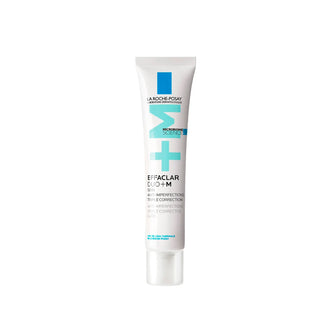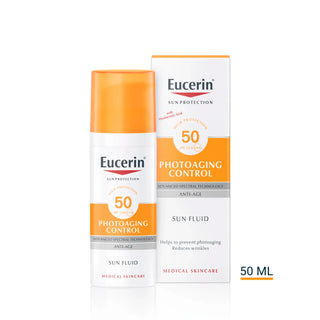It sounds utopian, but with the constant development of science, and more specifically cosmetics, we are increasingly looking for options that can keep our skin beautiful and healthy and even reverse some of the marks that time has left. We often look at two people of exactly the same age and realise that they have both aged differently: one has more age spots, the other has more wrinkles marked on the face.
wrinkles on their faces... This concept can be portrayed with two different terms: chronological age, based on one's date of birth, and biological age, which our skin appears to have, with all the inherent signs of time. These two terms don't always represent the same thing and this is where innovation begins.
A perfect example of this is identical twins: both are born with the same genetic code, but over the course of their lives they become increasingly different. But why does this happen? Epigenetics gives you the answer.
Our bodies behave differently to the stimuli we experience. Whether we're exposed to peaks of stress or smoking habits, whether we have a nutritionally rich diet, good physical exercise, and so on. Naturally, when we talk about ageing, all these factors are taken into account, since they all influence our DNA. And that's why epigenetics is the science of the future!
Epigenetics works like a switch, which can "activate" or "deactivate" certain genes linked to the youthfulness of the skin, moulding our appearance throughout our lives. All this happens without altering genetic information, but rather through a process called DNA methylation. When this process is exacerbated - and there is hypermethylation - it triggers the silencing of genes that are important for the youthfulness of the skin, particularly in terms of skin firmness, elasticity, hydration or evenness!
Fortunately, this is a reversible process, which means that the marks left on our DNA by an unhealthy lifestyle or bad habits can be removed. So the question we all want to answer is: what would happen to ageing skin if we could reverse these changes caused by epigenetics? What would it be like if we found a cosmetic that
could turn back the clock?
Eucerin will soon present you with the answer.
wrinkles on their faces... This concept can be portrayed with two different terms: chronological age, based on one's date of birth, and biological age, which our skin appears to have, with all the inherent signs of time. These two terms don't always represent the same thing and this is where innovation begins.
A perfect example of this is identical twins: both are born with the same genetic code, but over the course of their lives they become increasingly different. But why does this happen? Epigenetics gives you the answer.
Our bodies behave differently to the stimuli we experience. Whether we're exposed to peaks of stress or smoking habits, whether we have a nutritionally rich diet, good physical exercise, and so on. Naturally, when we talk about ageing, all these factors are taken into account, since they all influence our DNA. And that's why epigenetics is the science of the future!
Epigenetics works like a switch, which can "activate" or "deactivate" certain genes linked to the youthfulness of the skin, moulding our appearance throughout our lives. All this happens without altering genetic information, but rather through a process called DNA methylation. When this process is exacerbated - and there is hypermethylation - it triggers the silencing of genes that are important for the youthfulness of the skin, particularly in terms of skin firmness, elasticity, hydration or evenness!
Fortunately, this is a reversible process, which means that the marks left on our DNA by an unhealthy lifestyle or bad habits can be removed. So the question we all want to answer is: what would happen to ageing skin if we could reverse these changes caused by epigenetics? What would it be like if we found a cosmetic that
could turn back the clock?
Eucerin will soon present you with the answer.






